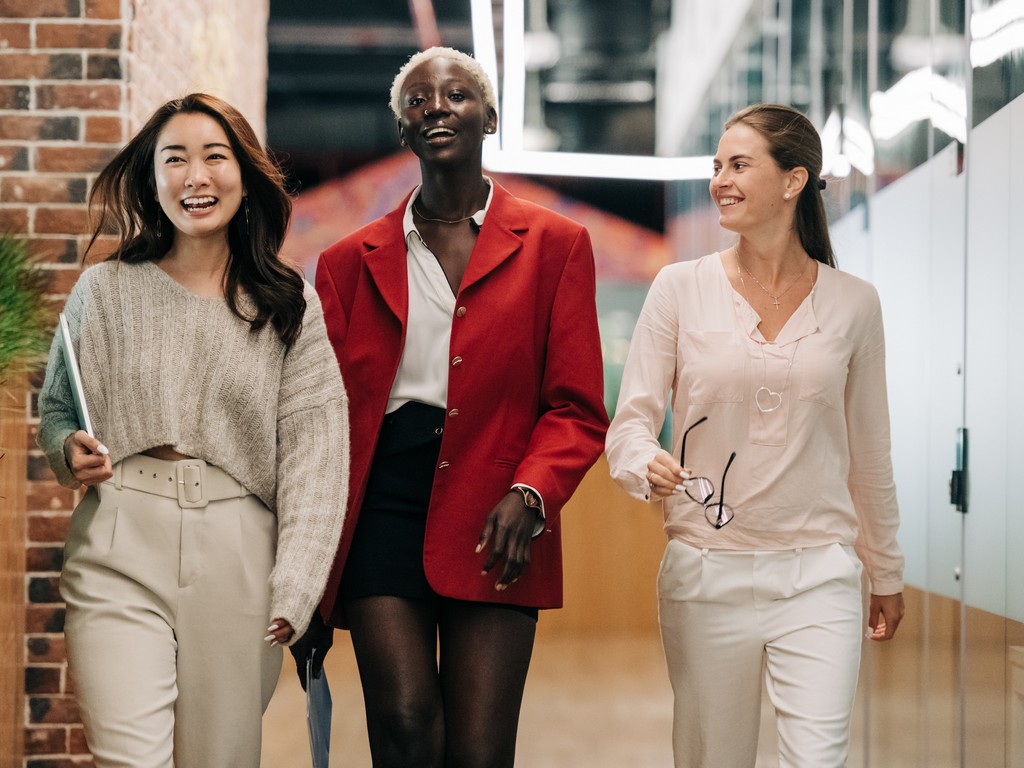Are you a paraprofessional attending meetings and trying to make a perfect impression? Do you want to stand out positively? One of the easiest ways to do so is by accessorizing appropriately. In this article, we’ll go over some tips and tricks to help you dress for success and boost your confidence.
Why Accessorizing is Important
Before we dive into the specifics, let’s take a moment to understand why accessorizing is important. Accessorizing is the art of adding small touches to your outfit that can make a big difference. It can help you stand out, look more professional, and boost your confidence. By taking the time to accessorize, you’re showing that you care about your appearance and that you take your role as a paraprofessional seriously.
Choosing the Right Accessories
When it comes to accessorizing meetings, there are a few key things to keep in mind. First, you want to choose accessories that complement your outfit, not overpower it. Second, you want to choose accessories that are appropriate for the occasion. Here are some specific tips to help you choose the right accessories:
Jewelry
Jewelry can be a great way to add some personality to your outfit. However, you want to be careful not to overdo it. Choose one or two pieces that complement your outfit and keep it simple. Avoid anything too flashy or distracting.
Scarves
Scarves are a great accessory for paraprofessionals. They can add some color to your outfit and help you stand out positively. Choose a scarf that complements your outfit and is appropriate for the occasion.
Bags
When it comes to bags, you want to choose something that is both functional and stylish. A tote bag or messenger bag can be a great choice for paraprofessionals. Choose a bag that is big enough to hold your essentials but not so big that it looks overwhelming.
Shoes
Shoes are an important part of any outfit. Choose shoes that are comfortable and appropriate for the occasion. Avoid anything too casual or too flashy.
FAQs
Here are some frequently asked questions about accessorizing for paraprofessional meetings:
Q1. How many accessories should I wear?
A1. It’s best to keep it simple and choose one or two accessories that complement your outfit.
Q2. Can I wear a hat to a meeting?
A2. It’s generally best to avoid hats for meetings, as they can be distracting.
Q3. Should I match my accessories to my outfit?
A3. Yes, your accessories should complement your outfit and not clash with it.
Q4. Can I wear sneakers to a meeting?
A4. It’s best to avoid sneakers for meetings, as they can look too casual.
Q5. Should I wear a watch?
A5. Yes, a watch can be a great accessory for paraprofessionals. Choose one that complements your outfit and is appropriate for the occasion.
Accessorizing is an important part of dressing for success as a paraprofessional. By choosing the right accessories, you can stand out positively and boost your confidence. Remember to keep it simple and appropriate for the occasion. With these tips and tricks, you’ll be sure to make a great impression at your next meeting.
Seeing Clearly: The Best Glasses for Paraprofessionals
As a paraprofessional, your job requires you to have excellent eyesight. Whether you work in a classroom, a library, or any other setting, you need to see clearly to perform your duties correctly. Therefore, choosing the right glasses is crucial, and in this article, we will discuss the best glasses for paraprofessionals.
Why is Choosing the Right Glasses Important?
Choosing the right glasses is essential because it affects your work performance and overall well-being. If your glasses are not suitable for your job or do not fit properly, you may experience eye strain, headaches, and other discomforts that can affect your productivity and quality of life.
Factors to Consider When Choosing Glasses as a Paraprofessional
When choosing glasses as a paraprofessional, you need to consider the following factors:
Prescription
If you have a specific prescription, you need to choose glasses that match it. Your prescription will determine the type of lenses you need, such as single-vision, bifocal, or progressive lenses.
Frame Comfort and Durability
As a paraprofessional, you need glasses that are comfortable to wear for extended periods. The frames should fit well and not cause any pressure points. Additionally, the frames should be durable enough to withstand daily wear and tear.
Lens Coatings
You may want to consider adding lens coatings such as anti-glare, anti-fog, or scratch-resistant coatings to your glasses. These coatings can enhance your vision and protect your glasses from damage.
Top Glasses for Paraprofessionals
Here are some of the best glasses for paraprofessionals:
Warby Parker Chamberlain Glasses
The Warby Parker Chamberlain glasses are stylish and comfortable. They have a classic design that suits any face shape and are available in various colors. The frames are made of acetate, a lightweight and durable material, and the lenses come with an anti-scratch coating.
Zenni Optical Round Glasses
The Zenni Optical Round glasses have a vintage-inspired design that adds a touch of sophistication to your look. The frames are made of stainless steel, which is strong and corrosion-resistant. The lenses are customizable, and you can add coatings such as anti-glare and anti-fog.
Lenscrafters Ray-Ban Clubmaster Glasses
The Lenscrafters Ray-Ban Clubmaster glasses have a timeless design that never goes out of style. The frames are made of acetate and metal, and the lenses come with an anti-reflective coating. These glasses are perfect for paraprofessionals who want to look professional and stylish at the same time.
FAQs
Q1. How often should I get my eyes checked?
It is recommended to get your eyes checked every two years. However, if you have pre-existing eye conditions or wear glasses or contacts, you may need to get your eyes checked more frequently.
Q2. Can I wear contact lenses instead of glasses?
Yes, you can wear contact lenses instead of glasses. However, you need to consider the nature of your job and whether contact lenses are suitable for it. Contact lenses require more maintenance than glasses and may not be suitable if you work in a dusty or dirty environment.
Q3. How can I prevent eye strain?
To prevent eye strain, you need to take frequent breaks, blink often, and adjust your computer screen’s brightness and contrast. Additionally, you may want to consider using glasses with an anti-glare coating.
Q4. Can I buy glasses online?
Yes, you can buy glasses online. However, you need to make sure that the online retailer is reputable and offers a wide range of glasses to choose from. Additionally, you need to have a valid prescription before purchasing glasses online.
Q5. How can I clean my glasses?
To clean your glasses, you need to use a microfiber cloth and a lens-cleaning solution. Avoid using paper towels or your shirt to clean your glasses as they can scratch the lenses.
Choosing the right glasses is crucial for paraprofessionals as it affects their work performance and overall well-being. When choosing glasses, you need to consider factors such as prescription, frame comfort and durability, and lens coatings. Some of the best glasses for paraprofessionals include Warby Parker Chamberlain glasses, Zenni Optical Round glasses, and Lenscrafters Ray-Ban Clubmaster glasses. By following the tips and recommendations in this article, you can find the perfect glasses that suit your needs and enhance your performance at work.
Ace Your Interview with These Accessorizing Tips for Paraprofessionals
Are you a paraprofessional preparing for an upcoming interview? While you may have already prepared for the interview questions, have you thought about how to accessorize for the big day? Accessorizing can give you an edge and elevate your look. Here are some tips to help you ace your interview:
Keep it Simple
When it comes to jewelry and accessories, less is often more. Keep it simple and avoid anything too flashy or distracting. A classic watch, simple stud earrings, and a small pendant necklace are all great options that can add a touch of sophistication without overpowering your outfit.
Pay Attention to the Details
Details matter, especially in an interview. Make sure your accessories are clean and polished. Check for any scratches or tarnishes and replace or repair anything that looks worn out. Small details like a clean watch face or a lint-free scarf can show that you pay attention to details and present yourself professionally.
Coordinate Colors
Your accessories should complement your outfit and not clash with it. Coordinate your accessories with your clothing colors. For example, if you’re wearing a navy blue suit, consider adding a tie or scarf in a complementary color like light blue or silver.
Be Mindful of Your Hair and Makeup
Accessories aren’t just limited to jewelry and clothing. Your hair and makeup can also make a big difference in your overall look. Keep your hair neat, and avoid any distracting hairstyles. Makeup should be natural and polished, and not overdone. Stick to neutral colors and avoid anything too bold or dramatic.
Consider the Industry
Different industries have different dress codes and expectations. For example, if you’re interviewing for a job in finance, you may want to keep your accessories more conservative and traditional. If you’re interviewing for a creative role, you may have more leeway to express your style. Research the company and industry beforehand to get a sense of what’s appropriate.
FAQs:
- Can I wear a statement necklace to an interview? A: While a statement necklace can be a great accessory, it’s best to avoid anything too bold or distracting. Stick to simple and classic pieces that complement your outfit.
- Are earrings necessary for an interview? A: Earrings aren’t necessary, but they can add a touch of elegance and sophistication to your look. Stick to simple studs or small hoops.
- Should I wear a watch to an interview? A: A watch can be a great accessory that shows you’re punctual and value your time. Stick to a classic and simple style.
- Can I wear bright colors to an interview? A: It’s best to stick to neutral or muted colors for an interview. While you want to express your personality, you also want to present yourself as professional and polished.
- Is it okay to wear perfume or cologne to an interview? A: It’s best to avoid strong scents for an interview. Opt for a light and subtle fragrance or skip it altogether.
Accessorizing for an interview can give you the edge you need to stand out and make a great first impression. Remember to keep it simple, pay attention to details, coordinate colors, be mindful of your hair and makeup, and consider the industry. With these tips, you can ace your interview and land your dream job. Good luck!

Meet Jerry Glover, a passionate educator and expert in Paraprofessional education. With over 10 years of experience in the field, Jerry has dedicated his career to helping students with diverse learning needs achieve their full potential. His extensive knowledge of Paraprofessional education has enabled his to design and implement effective strategies that empower paraprofessionals to provide exceptional support to students.
Jerry is a certified Paraprofessional educator and has worked with students from various backgrounds, including those with special needs and English Language Learners. He has also provided professional development training to paraprofessionals across different schools, helping them hone their skills and improve student outcomes.
In addition to his work in Paraprofessional education, Jerry is also a published author and speaker, sharing his insights and expertise at various conferences and events. His passion for education and commitment to excellence make him a valuable resource for anyone looking to improve Paraprofessional education and support the needs of all learners
